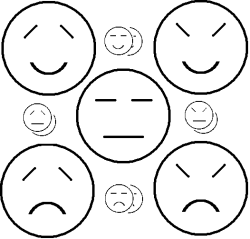A discussion with a friend through email the other day led to tears for me. Of course, thankfully, this was easy to hide from a friend on the other side of cyberspace. It started with a question, a theological one that was concerning her. It was a good question, and I had a lot to say in response. I had quoted to her from Matthew 19:13-15. Okay, maybe I paraphrased it…I’m not always the best at quoting word for word. Readers of my blog get the benefit of me being able to look these things up beforehand.
Then children were brought to him that he might lay his hands on them and pray. The disciples rebuked the people, but Jesus said, “Let the little children come to me and do not hinder them, for to such belongs the kingdom of heaven.” And he laid his hands on them and went away. (Matthew 19:13-15, ESV)
The part that stirred my emotions was how Jesus said to everyone around him, “Let the little children come to me”. Remembering this story, and reciting it to a friend literally brought tears to my eyes. I noticed that I was fighting back tears, so I told my wife. I read what I had typed in the email to her, trying to figure out what was going on, and had even greater difficulty hiding the emotion the second time I revisited the act of Jesus insisting the children be allowed to come to Him.
I began pondering the whole thing, searching for answers. I thought about why the disciples were shooing the kids away from Jesus. Maybe the disciples thought the kids would be a bother, disturbing Jesus and others who were there. Maybe they thought the kids were not serious and disciplined enough to be in His presence. Maybe they thought it was a waste of time for Jesus to lay hands on and pray for little ones who might be too young to understand what was going on. Perhaps they thought the kids were not knowledgeable enough or mature enough to really get anything from hearing Jesus. Regardless, Jesus interrupted and insisted the children be allowed to come to Him.
Was I connecting with those kids and how the disciples might have viewed them? I know I have felt like a bother, more times than I can count. I know I lack discipline in many ways. I can be very serious, but sometimes I avoid serious situations and hide behind jokes and fake smiles. I often feel like I do not know nearly enough to be taken seriously. I worked my way down all the ways those kids might have been viewed, and in spite of it all, Jesus wanted them with Him. This truth was so freeing to me, it caused me to let down my guard and cry.
God reminded me through this special moment that my worth is not based on knowledge, discipline, being serious and reverent, or even being pleasant to be around. God wants to be around me when I think no one does or even should. His Grace is sufficient. The relationship He has established with me in Christ is not unstable at all. It’s actually quite secure.




